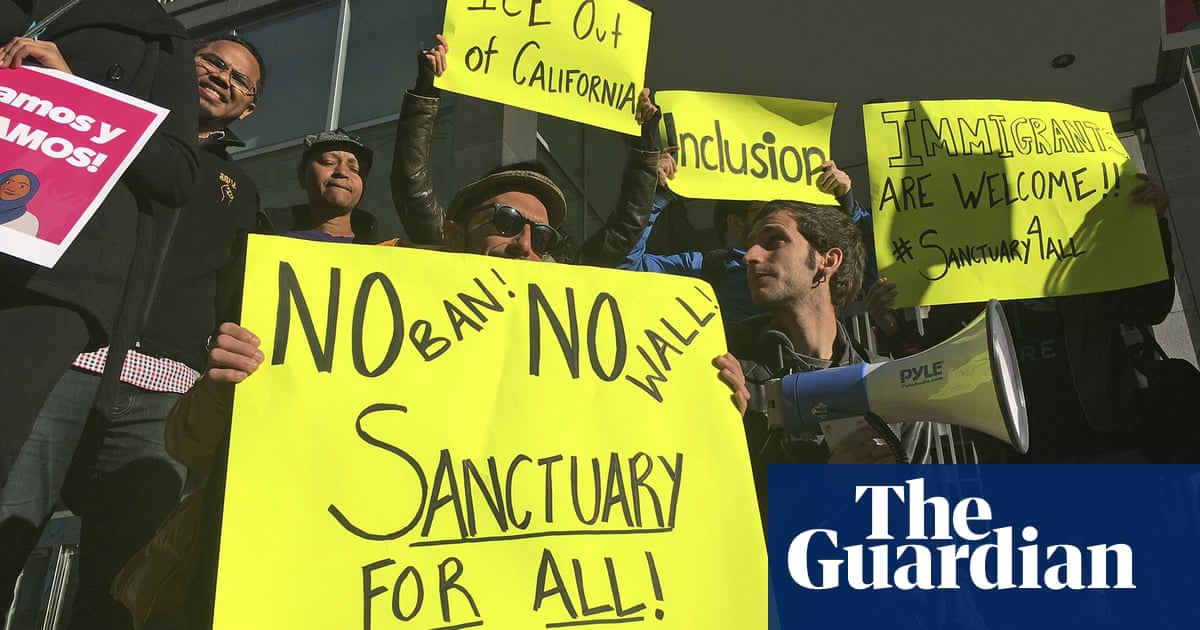TheTrump administrationcannot deny federal funds to cities and counties that have passed laws preventing or limiting cooperation with US immigration officials, a federal judge ruled on Thursday.
The US district judge William Orrick issued a temporary injunction sought bySan Francisco, Santa Clara county and and more than a dozen other municipalities with “sanctuary” policies, and declared that portions of Donald Trump’s executive orders were unconstitutional.
“The cities and counties have also demonstrated a likelihood of irreparable harm,” Orrick wrote in his order. “The threat to withhold funding causes them irreparable injury in the form of budgetary uncertainty, deprivation of constitutional rights, and undermining trust between the cities and counties and the communities they serve.”
On his first day in office, the US president issued an order directing the attorney general and homeland security secretary to withhold federal funds from sanctuary jurisdictions as part of his administration’s crackdown on immigration. In another order, he directed the federal government to ensure funds to state and local governments don’t “abet so-called ‘sanctuary’ policies that seek to shield illegal aliens from deportation”.
Meanwhile, on Thursday the US transportation department threatened states with the loss of federal funding if they do not comply withUS immigrationenforcement efforts.
Under the judge’s order, the federal government is prohibited “from directly or indirectly taking any action to withhold, freeze, or condition federal funds”. The Trump administration must provide written notice of his order to all federal departments and agencies by Monday.
The plaintiffs have argued the orders amounted to overreach and that the Trump administration was attempting to force cities to participate in its “reckless and illegal mass deportation efforts”.
“The federal administration is illegally asserting power it does not have, as courts already determined during the first Trump Administration,” David Chiu, the San Francisco city attorney, said in a statement.
“They want to commandeer local police officers as federal Ice agents, while strong-arming local officials with threats of withholding federal funds that support our police department, our efforts to address homelessness, and our public health system.”
Sign up toThis Week in Trumpland
A deep dive into the policies, controversies and oddities surrounding the Trump administration
after newsletter promotion
The federal government has not yet attempted to withhold specific amounts or lay out conditions on specific grants, and during a hearing on Wednesday attorneys for the justice department argued it was too soon for the judge to issue an injunction for that reason.
Orrick, who was nominated by Barack Obama, said government lawyers made the same argument during Trump’s first term when the Republican issued a similar order.
“Their well-founded fear of enforcement is even stronger than it was in 2017,” Orrick wrote. He pointed to the executive orders and directives fromPam Bondi, other federal agencies and justice department lawsuits filed against Chicago and New York.
San Francisco successfully challenged the 2017 Trump order and the ninth US circuit court of appeals agreed with the lower court that Trump exceeded his authority when he signed an executive order threatening to cut funding for “sanctuary cities”.
The cities and counties who sued to stop the administration’s most recent orders praised the judge’s decision.
“At a time when we continue to see tremendous federal overreach, the court’s ruling affirms that local governments can serve their mission and maintain trust with the communities they care for,” said Tony LoPresti, counsel for Santa Clara county, in a statement.
Associated Press contributed to this report
